15 Home Remedies For Loss Of Taste And Smell
Revive your senses and rediscover the joy of flavor and aroma with natural solutions.

Image: Shutterstock
Imagine the frustration of having your favorite food in front of you, but being unable to savor its aroma or flavors! Losing the sense of taste or smell can turn even the most special meals into a disappointing experience. But don’t worry. Home remedies for loss of taste and smell can help restore these senses. Whether caused by the lingering effect of cold, seasonal allergies, or any other condition, these simple, easy-to-follow remedies can help you get back can help your get back to enjoying life’s simplest pleasures. This article will take you through all these natural remedies that involve using basic kitchen ingredients to help regain your sense of smell and taste. So, without further ado, scroll down!
In This Article
Home Remedies For Loss Of Taste And Smell
1. Castor Oil
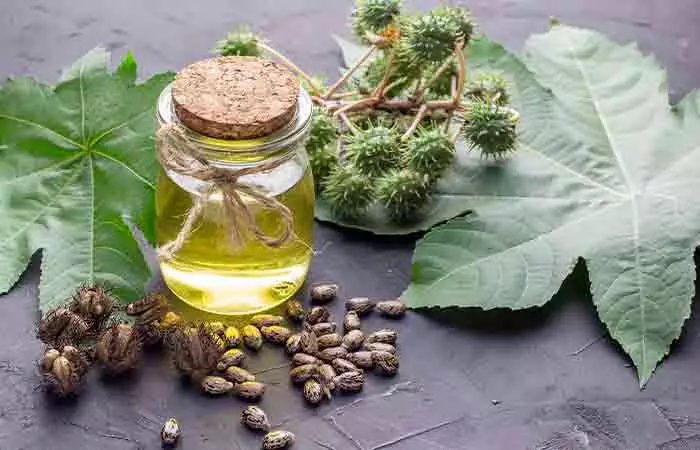
The ricinoleic acid in castor oil imparts powerful anti-inflammatory properties to it (6). Using castor oil as nasal drops can help alleviate symptoms of swelling and inflammation associated with a cold or flu, thereby restoring your sense of smell and taste.
You Will Need
1 teaspoon of warmed cold-pressed castor oil
What You Have To Do
Put a drop of warmed castor oil into each of your nostrils.
How Often You Should Do This
Do this twice daily – once in the morning, and once in the evening.
2. Garlic
If you are wondering how to get rid of a stuffy nose, garlic may be an effective solution, and it can be easily available at home. Known for their antimicrobial and anti-inflammatory activities, they can help treat a stuffy nose, relieving cold and flu-like symptoms (7). This, in turn, may help you breathe easier and restore your sense of smell and taste.

You Will Need
- 2-3 chopped garlic cloves
- 1 cup of water
What You Have To Do
- Bring a cup of water to a boil in a saucepan.
- Add the chopped garlic cloves and simmer for a few minutes.
- Strain and drink the tea.
How Often You Should Do This
You can drink this twice daily.
3. Ginger
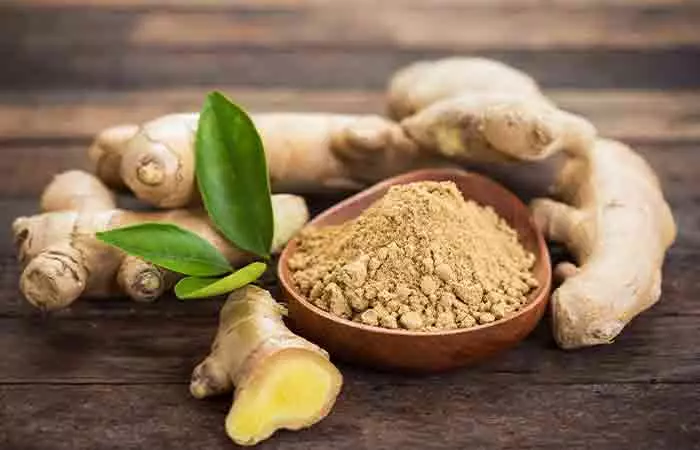
The warming properties of ginger can help treat cold (8). The strong aroma of ginger enhances your sense of smell, while its flavor stimulates your taste by activating your taste buds.
You Will Need
Small bits of peeled ginger
What You Have To Do
- Chew small bits of peeled ginger at regular intervals.
- Alternatively, you can consume ginger tea.
How Often You Should Do This
Do this daily.
Note: If you consume ginger in large quantities, it may cause heartburn, throat irritation, and, in some cases, diarrhea.
4. Cayenne Pepper
Cayenne pepper contains capsaicin that is known to clear nasal congestion (9), (10). This, in turn, can help restore your lost sense of taste and smell.
You Will Need
- 1 teaspoon of cayenne pepper
- 1 teaspoon of honey
- 1 cup of warm water
What You Have To Do
- Mix a teaspoon each of honey and cayenne pepper powder in a glass of water.
- Drink the concoction.
How Often You Should Do This
You can drink this at least once daily.
Note: Cayenne pepper can cause stomach ache if taken in large quantities. If you are taking medication for high blood pressure, you might have to consult your physician before using this remedy.
5. Lemon
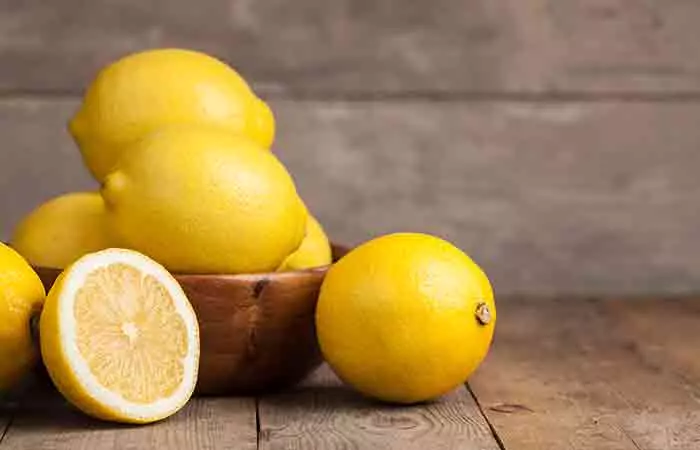
Lemons are acidic and rich in vitamin C and exhibit antimicrobial activity (11). Its strong, characteristic odor, along with chemical composition, may help reduce infection that causes blocked/runny nose and enhance your sense of taste and smell.
You Will Need
- ½ lemon
- 1 glass of water
- Honey (as required)
What You Have To Do
- Add the juice of half a lemon to a glass of water.
- Add some honey to it and mix well.
- Drink the juice immediately.
How Often You Should Do This
Drink this twice daily, preferably before meals.
Note: Do not use this remedy if you have a throat infection as it may aggravate it.
6. Apple Cider Vinegar
Apple cider vinegar exhibits antimicrobial and anti-inflammatory properties (12), (13). This may help fight off the microbes that cause infections and clear nasal congestion, thereby enhancing the senses of smell and taste.
You Will Need
- 1 tablespoon of apple cider vinegar
- 1 cup of water
- Honey (as required)
What You Have To Do
- Add a tablespoon of apple cider vinegar to a glass of warm water.
- Add a little honey as needed.
- Mix well and drink the mixture.
How Often You Should Do This
You can drink this once daily.
Note: Consuming unregulated amounts of undiluted ACV can cause tooth enamel erosion, digestive disorders, and increase potassium levels in your body.
7. Oil Pulling
Oil pulling helps promote oral health, thereby helping you get rid of the foul taste in your mouth (14). It may also help manage symptoms of sore throat and refresh the taste in your mouth.
You Will Need
1 tablespoon of coconut or sesame oil
What You Have To Do
- Swish coconut or sesame oil in your mouth for 10 to 15 minutes.
- Spit it out and brush your teeth.
How Often You Should Do This
You can do this once daily (every morning).
8. Carom Seeds
Carom seeds have anti-inflammatory properties that can help eliminate nasal congestion (15). This can help enhance the perception of smell and taste.
You Will Need
- 1 tablespoon of carom seeds
- A small muslin cloth
What You Have To Do
- Put a tablespoon of carom seeds in a small piece of muslin cloth.
- Tie the cloth and inhale the strong aroma of carom seeds.
How Often You Should Do This
You can do this multiple times daily.
9. Cinnamon
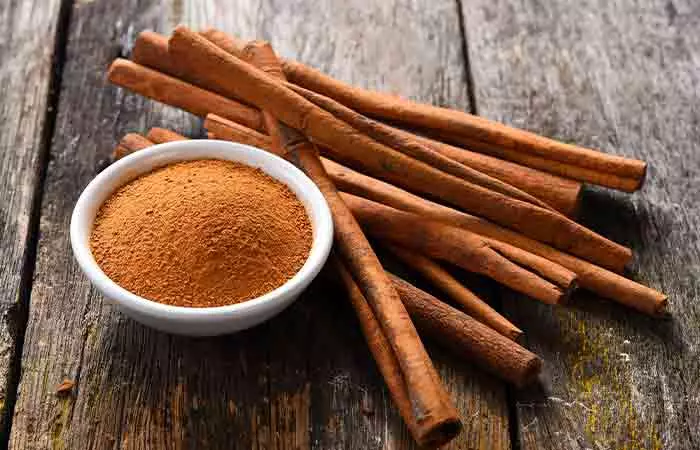
Cinnamon possesses anti-inflammatory and antimicrobial properties (16). This may help reduce any infection that causes nasal congestion, thereby enhancing your sense of smell and taste.
You Will Need
- ½ teaspoon of cinnamon powder
- 1 teaspoon of honey
What You Have To Do
- Mix half a teaspoon of cinnamon powder with a teaspoon of honey.
- Apply this paste to your tongue and leave it on for about 10 minutes.
How Often You Should Do This
Do this twice daily.
Note: Excessive consumption of cinnamon can cause mouth sores. Do not use this remedy more than the stipulated dose.
11. Peppermint
Menthol, the main constituent of peppermint leaves, possesses anti-inflammatory and antimicrobial properties (17), (18). These can help alleviate symptoms of cold and flu that might be suppressing your sense of smell and taste.
You Will Need
- 10-15 peppermint leaves
- 1 cup of water
- Honey
What You Have To Do
- Add 10 to 15 peppermint leaves to a cup of water.
- Bring it to a boil in a saucepan.
- Simmer and strain.
- Once the tea cools down a bit, add some honey to it.
- Drink it up.
How Often You Should Do This
You can drink mint tea twice daily.
12. Curry Leaves
Several studies show that curry leaves possess anti-inflammatory properties (19). This may help reduce inflammation associated with cold and flu that may be blocking your nasal passages, thereby restoring the senses of taste and smell.
You Will Need
- 10-15 curry leaves
- 1 glass of water
What You Have To Do
- Add 10 to 15 curry leaves into a glass of water.
- Soak them for about 30 minutes or more.
- Drink the mixture.
How Often You Should Do This
Drink this twice daily.
13. Eucalyptus Oil

Eucalyptus oil contains eucalyptol (1,8-cineole). The anti-inflammatory and mucolytic properties of eucalyptol help relieve symptoms of upper respiratory diseases that could have triggered the smell and taste impairment (20).
You Will Need
- 1 drop of eucalyptus oil
- 1 bowl of water
- A towel
What You Have To Do
- Add a drop of eucalyptus oil to a bowl of hot water.
- Inhale the steam and cover your head with a towel.
- Continue for 10 to 15 minutes.
How Often You Should Do This
You can do this 1 to 2 times daily.
Note: Excessive inhalation of undiluted vapors of eucalyptus oil can cause dizziness, stomach pain, nausea, weakness, etc. Hence, make sure you stick to the amounts specified above.
14. Nasal Irrigation
Nasal saline irrigation is a simple and effective technique used to clean and moisturize nasal passages. It involves flushing out the nasal passages with a saline solution. According to a study, the use of nasal saline irrigation along with corticosteroids (anti-inflammatory medicine) may help improve olfactory dysfunction (21).
You Will Need
- 1 cup of boiled water
- ½ teaspoon of non-iodized salt
What You Have To Do
- Mix salt and water to prepare the solution.
- Turn your head to one side such that one ear is toward the ceiling.
- Gently pour the saline solution into the top nostril.
- Allow the solution to exit from the bottom nostril.
- Turn your head to the opposite side and repeat the process.
- Blow your nose to remove excess mucus and remaining solution.
How Often You Should Do This
1 to 2 times daily.
15. Vitamins
is associated with loss of smell and taste (22). Vitamins A, B, and E help regulate chemosensory function, but there is very little medical evidence to prove the link of their deficiencies with loss of sense of smell or taste.
Consume foods rich in these vitamins like shellfish, cereals, cheese, and milk to combat the deficiencies. You can also take additional supplements for these nutrients after consulting your doctor.
Before you use any of these home remedies for loss of taste and smell, it is important to familiarize yourself with the connection between taste and smell. Scroll down to the next section to learn how these senses function.
How Do Smell And Taste Work?
Your senses of smell and taste are often connected. However, as you age, these senses can change, and you may experience a change or even loss of smell and taste (1).
The senses of smell and taste are a part of the chemosensory system. The ability to smell things around you comes from special sensory cells called the olfactory sensory neurons. These are found within the olfactory bulb inside the nose.
Each of these olfactory neurons has an odor receptor that is stimulated by microscopic molecules released by the substances around us. Smells reach the olfactory receptors via two pathways. The first is through the nostrils, and the second is via a channel that connects the roof of the throat to the nose. The aroma from food releases aromas through the second channel.
The ability to taste is also referred to as gustatory perception. The tongue has about 2,000 to 5,000 chemical receptors on its surface. These are also more commonly called taste buds.
The five major tastes that are perceived by your taste buds are sweet, sour, bitter, salty, and umami. You can perceive taste when water-soluble chemicals in your mouth come in contact with your taste buds (2).
The brain receives signals from the tongue and processes them into distinct tastes. The sense of taste can also be linked to other senses, like the sense of smell and brain functions.
 Trivia
TriviaTaste and smell impairment can also be referred to as chemosensory dysfunction. In the next section, we will discuss some major factors that may cause a loss of taste and smell.
What Causes The Loss Of Taste And Smell?
As we have already mentioned, your sense of smell and taste are correlated. In fact, when you sense a loss in taste, it could actually be a result of impairment in the sense of smell.
Conditions like hyposmia, anosmiai A temporary or even permanent loss of smell caused due to smoking, medicinal side effects, nasal obstruction, or mucus. , parosmia, and phantosmiai Also known as olfactory hallucination, a condition in which you detect smells that are not present in the environment. can cause impairment in perceiving smells. Similarly, some common taste disorders are ageusiai A rare condition characterized by a loss of taste caused due to infections, certain medications, or nutritional deficiencies. , hypogeusia, dysgeusia, parageusiai A bad or metallic taste in the mouth caused due to medication, treatment, or a medical condition. , and hypergeusiai A taste disorder in which the sense of taste is abnormally heightened due to lesions in a small space located in the skull. (3).
Barney Stringer, a blogger, shared his life-long experience with anosmia. He writes, “For something so little understood, anosmia is surprisingly common, either temporary or permanent – it can be caused by obstruction (polyps), injury, or just old age (i).” The blogger also shares how the condition can bring danger as well, from not being able to detect smoke to consuming expired food.
Both taste and smell disorders are often the results of similar conditions or factors. Loss of smell and taste can be triggered by sinus, respiratory conditions, aging, head trauma, dental issues like oral infection, placement of dental appliances (like dentures), and Bell’s palsy (4).
A study conducted on 10,953 individuals found that 3,356 were COVID positive and 602 were COVID-negative. Out of the COVID-positive participants, 21% of the participants reported a reduction in taste, 47% of them reported a reduction in smell, and 17% of them had oral irritation.
If your senses of smell and taste seem to have been impaired, it is best to get diagnosed to determine the underlying cause of your condition.
Diagnosis Of Loss Of Taste And Smell
Both smell and taste alteration conditions are often diagnosed by an ENT specialist or otolaryngologist. Your doctor may test for the lowest concentration of taste that you can sense and odor you can smell. You may be asked to taste different substances of varying concentrations for the same.
You may also be asked to take a simple ‘sip, spit, and rinse’ test. Your doctor might conduct a physical examination of your ears, nose, or throat.
A loss of taste and smell can significantly impact the quality of your life. Learn more about it in the next section.
Impact Of Loss Of Taste And Smell On Quality Of Life
Loss of taste and smell may make you lose interest in food, leading to reduced nutrient intake. This may put you at the risk of developing nutritional deficiencies. Additionally, it may impact your life in the following ways:
- The inability to enjoy food may lead to sadness, frustration, or anxiety, as meals often are a source of comfort and pleasure.
- Since food is an important part of social events, the loss may also make you withdraw from social interactions, impacting your relationships with friends and family. In the long run, this may give rise to loneliness and depression.
- A loss of smell may also have some safety concerns in daily life. For instance, with your olfactory senses, you may not be able to detect gas leaks or smoke from fire increasing the risk of accidents.
- Similarly, without a sense of taste or smell, you cannot recognize spoiled food.
To avoid all of this, your doctor will suggest appropriate modes of treatment once your condition is diagnosed accurately. They are discussed below.
Medical Treatment Options
The method of treatment depends on the severity of symptoms, age, and general health. The treatment options may include:
- If some medication is causing this condition, you will be asked to discontinue or stop taking it.
- Zinc deficiency can hamper your sense of taste and smell (5). Zinc can help stimulate food intake by triggering the hypothalamusi A structure deep inside the brain that controls appetite and plays a role in palate and taste perception. to enhance the sense of taste.
- Quitting smoking can help regain a sense of taste over time.
Your doctor may also recommend olfactory training for loss of smell. For it, you need to smell four different scents separately for 20 to 30 seconds, twice a day. This is done for at least 24 weeks (23).
 Quick Tip
Quick TipYou must be aware that your diet has a huge role to play in restoring your lost sense of taste and smell. While you are following the above remedies, also remember to alter your eating habits. Follow these diet tips to enhance your sense of smell and taste.
Diet Tips
- Sources of protein like fish, chicken, or soy may enhance the sense of taste as they are savory (24). You can also have foods like eggs, cheese, and white meats.
- Consume foods rich in zinc like legumes, nuts, whole grains, shellfish, and dark chocolate. Zinc has been known to stimulate food intake via neuropeptidei Small proteins produced and released by nerve cells in the body that stimulate the intake of food. (25). Therefore, zinc can potentially enhance the sense of taste.
You will have to alter your lifestyle choices to manage your condition. Here are a few tips that can help.
Prevention Tips
- Drink plenty of water and stay hydrated.
- Try steam inhalation.
- Maintain good oral hygiene.
- Take the necessary precautions to avoid infections like cold and flu – one of the main factors responsible for the loss of taste and smell.
Infographic: Home Remedies For Loss Of Taste And Smell
Loss of smell and taste are uncomfortable symptoms associated with allergies, infections, respiratory conditions, aging, etc. One of the best ways to regain these lost senses is to treat the root cause. There are some simple remedies that you can follow to recover from olfactory dysfunction. Check out the infographic below to know more!
Some thing wrong with infographic shortcode. please verify shortcode syntax
Losing your sense of taste and smell can be a frustrating experience. It can make life’s simplest pleasures, such as tasting your favorite food or catching a whiff of fresh flowers, feel less enjoyable. Fortunately, you can find relief with these home remedies for loss of taste and smell. Simple ingredients like garlic, ginger, cinnamon, and curry leaves are easily available in your kitchen. Their anti-inflammatory and antimicrobial properties may help restore your lost senses. However, it’s always best to consult a doctor before using home remedies. Moreover, if the symptoms persist, it’s important to get tested to rule out any underlying conditions that need immediate attention.
Frequently Asked Questions
How long does the loss of taste and smell caused by COVID-19 last?
Dr. Jonathan M. Fields, DAOM, says, “The loss of taste and smell caused by COVID-19 can last anywhere from a couple of weeks to over a year, and even permanently in some rare cases. Luckily, it is generally about 2-4 weeks for most people.”
Does Omicron affect taste and smell?
Dr. Fields says, “Omicron and the later variants have dramatically reduced their abilities to inhibit the sense of smell and taste.” However, he feels it is still possible.
Is loss of taste and smell normal with aging?
Yes, it is normal with aging. Dr. Field says, “Some people begin to have a decline in their senses of smell and taste naturally as they age.”
How long does it take for your taste buds to come back?
Usually, taste buds have a cycle that lasts between 10-15 days, and they should come back within this period. However, it may take longer, depending on the cause of your condition.
Can stress affect your sense of taste?
Yes, longer and more severe cases of stress can cause olfactory loss or flavor distortion, which can make you consume more foods than you normally would. It may even cause a weird taste in your mouth and make foods taste foul.
Does the loss of smell affect memory?
Recent research on older people residing outside nursing homes has found that a decline in smell is linked to a quicker accumulation of Alzheimer’s disease-related pathology detected in brain scans. The results prove that loss of smell is a crucial early sign of Alzheimer’s-related cognitive decline and the buildup of linked dangerous proteins (26).
Does low estrogen affect the sense of smell?
Yes. A study has found that since estrogen protects the olfactory function, variations in its levels during specific physiological stages in women – such as pregnancy and postmenopause – can impact a person’s capacity to detect and identify smells (27).
What medications can cause loss of smell and taste?
Some examples of medications that can impair taste and smell include antihypertensive drugs, antihyperlipidemic drugs, antibiotics, neurologic drugs, and endocrine drugs (28).
Does high blood pressure affect taste buds?
Yes. According to a study, people who self-reported having changed taste and smell perception also experienced higher systolic blood pressure and arterial pressure (28).
How to get your taste back instantly?
The time it takes for taste buds to work again depends on the underlying reason for the lack of taste in the first place. However, you can try the above-mentioned remedies a few times to get your taste buds working again.
Key Takeaways
- Loss of smell and taste may happen due to age, illness, or trauma.
- Castor oil, ginger, and garlic may help treat loss of taste and smell due to their anti-inflammatory properties.
- Steam Inhalation may assist in clearing out your nasal passages.
- Staying hydrated and following good oral hygiene is important.
Illustration: Home Remedies For Loss Of Taste And Smell + Prevention
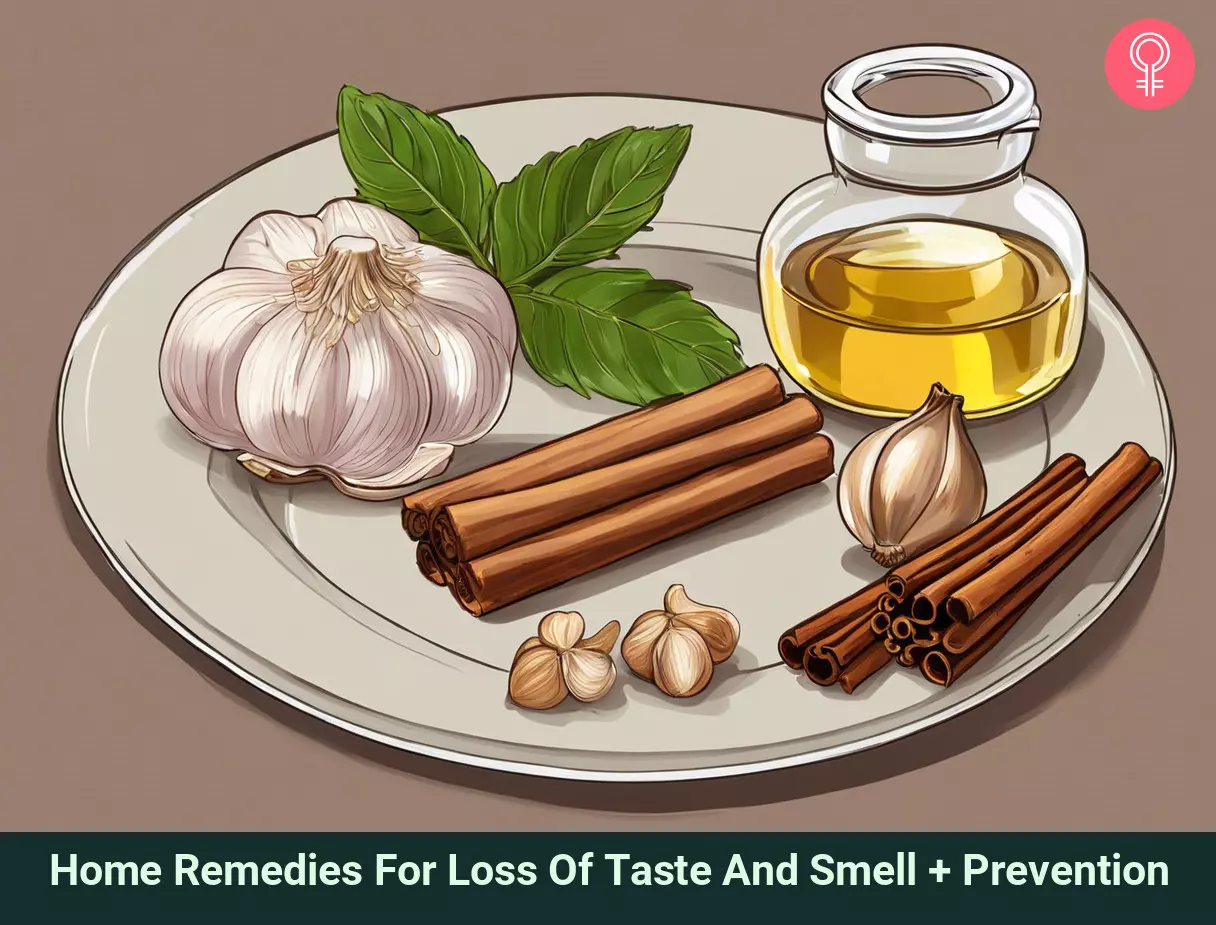
Image: Stable Diffusion/StyleCraze Design Team
References
Articles on StyleCraze are backed by verified information from peer-reviewed and academic research papers, reputed organizations, research institutions, and medical associations to ensure accuracy and relevance. Read our editorial policy to learn more.
- Prevalence of olfactory impairment in older adults. JAMA, US National Library of Medicine, National Institutes of Health.
https://pubmed.ncbi.nlm.nih.gov/12425708/ - Taste Perception of Sweet, Sour, Salty, Bitter, and Umami and Changes Due to l-Arginine Supplementation, as a Function of Genetic Ability to Taste 6-n-Propylthiouracil, MDPI, US National Library of Medicine, National Institutes of Health.
https://www.ncbi.nlm.nih.gov/pmc/articles/PMC5490520/ - Smell and taste disorders. GMS Current Topics in Otorhinolaryngology – Head and Neck Surgery, US National Library of Medicine, National Institutes of Health.
https://pubmed.ncbi.nlm.nih.gov/22558054/ - Smell and taste disorders: a primary care approach. American Family Physician, US National Library of Medicine, National Institutes of Health.
https://pubmed.ncbi.nlm.nih.gov/10670508/ - Zinc and the special senses. Annals of Internal Medicine, US National Library of Medicine, National Institutes of Health.
https://pubmed.ncbi.nlm.nih.gov/6349457/ - Effect of ricinoleic acid in acute and subchronic experimental models of inflammation. US National Library of Medicine, National Institutes of Health.
https://pubmed.ncbi.nlm.nih.gov/11200362// - Immunomodulation and Anti-Inflammatory Effects of Garlic Compounds, Journal of Immunology Research, US National Library of Medicine, National Institutes of Health.
https://www.ncbi.nlm.nih.gov/pmc/articles/PMC4417560/ - Active Compounds in Gingers and Their Therapeutic Use in Complementary Medicine, Medicinal and Aromatic Plant Science and Biotechnology, Semantic Scholar.
https://www.ncbi.nlm.nih.gov/pmc/articles/PMC3665023/https://www.semanticscholar.org/paper/Active-Compounds-in-Gingers-and-Their-Therapeutic-Qin-Xu/e3308daa7c3c6aa0e90aeeac21116da90afcaf96?p2df - Capsaicin for non-allergic rhinitis. US National Library of Medicine, National Institutes of Health.
https://pubmed.ncbi.nlm.nih.gov/26171907/ - The Effect of Capsaicin on Salivary Gland Dysfunction. US National Library of Medicine, National Institutes of Health.
https://pubmed.ncbi.nlm.nih.gov/27347918/ - Cytological Aspects on the Effects of a Nasal Spray Consisting of Standardized Extract of Citrus Lemon and Essential Oils in Allergic Rhinopathy, ISRN Pharmaceutics, US National Library of Medicine, National Institutes of Health.
https://www.ncbi.nlm.nih.gov/pmc/articles/PMC3523552/ - Vinegar: Medicinal Uses and Antiglycemic Effect, Medscape General Medicine, US National Library of Medicine, National Institutes of Health.
https://www.ncbi.nlm.nih.gov/pmc/articles/PMC1785201/ - Anti-obesity and anti-inflammatory effects of synthetic acetic acid vinegar and Nipa vinegar on high-fat-diet-induced obese mice, Scientific Reports, US National Library of Medicine, National Institutes of Health.
https://www.ncbi.nlm.nih.gov/pmc/articles/PMC5532206/ - Oil pulling for maintaining oral hygiene – A review, Journal of Traditional and Complementary Medicine, US National Library of Medicine, National Institutes of Health.
https://www.ncbi.nlm.nih.gov/pmc/articles/PMC5198813/ - Trachyspermum ammi, Pharmacognosy Review, US National Library of Medicine, National Institutes of Health.
https://www.ncbi.nlm.nih.gov/pmc/articles/PMC3358968/ - Cinnamon: A Multifaceted Medicinal Plant, Evidence-Based Complementary and Alternative Medicine, US National Library of Medicine, National Institutes of Health.
https://www.ncbi.nlm.nih.gov/pmc/articles/PMC4003790/ - A review of the bioactivity and potential health benefits of peppermint tea (Mentha piperita L.). US National Library of Medicine, National Institutes of Health.
https://pubmed.ncbi.nlm.nih.gov/16767798/ - The anti-inflammatory activity of L-menthol compared to mint oil in human monocytes in vitro: a novel perspective for its therapeutic use in inflammatory diseases. US National Library of Medicine, National Institutes of Health.
https://pubmed.ncbi.nlm.nih.gov/9889172/ - Evaluation of Bioactive Compounds, Pharmaceutical Quality, and Anticancer Activity of Curry Leaf (Murraya koenigii L.), Evidence-Based Complementary and Alternative Medicine, US National Library of Medicine, National Institutes of Health.
https://www.ncbi.nlm.nih.gov/pmc/articles/PMC3947808/ - Anti-inflammatory activity of 1.8-cineol (eucalyptol) in bronchial asthma: a double-blind placebo-controlled trial. US National Library of Medicine, National Institutes of Health.
https://pubmed.ncbi.nlm.nih.gov/12645832/, National Institutes of Health. - Comparison of the Healing Effect of Nasal Saline Irrigation with Triamcinolone Acetonide Versus Nasal Saline Irrigation alone in COVID-19 Related Olfactory Dysfunction: A Randomized Controlled Study
https://www.ncbi.nlm.nih.gov/pmc/articles/PMC8272442/ - A possible correlation between vitamin D deficiency and loss of smell: 2 case reports, The Journal of Chiropractic Medicine, US National Library of Medicine, National Institutes of Health.
https://www.ncbi.nlm.nih.gov/pmc/articles/PMC3315864/ - Olfactory training, US National Library of Medicine, National Institutes of Health.
https://www.ncbi.nlm.nih.gov/books/NBK567741/ - Nutrition and taste and smell dysfunction, GMS Current Topics in Otorhinolaryngology – Head and Neck Surgery, US National Library of Medicine, National Institutes of Health.
https://www.ncbi.nlm.nih.gov/pmc/articles/PMC6051307/ - The role of zinc in the treatment of taste disorders. Recent Patents on Food, Nutrition & Agriculture, US National Library of Medicine, National Institutes of Health.
https://pubmed.ncbi.nlm.nih.gov/23305423/ - Loss of smell linked to Alzheimer’s cognitive impairment and biomarkers. National Institute on Aging, National Institutes of Health.
https://www.nia.nih.gov/news/loss-smell-linked-alzheimers-cognitive-impairment-and-biomarkers - [Olfactory perception in women with physiologically altered hormonal status (during pregnancy and menopause]. Medicinski Pregled, US National Library of Medicine, National Institutes of Health.
https://pubmed.ncbi.nlm.nih.gov/12584889/ - A longitudinal study of altered taste and smell perception and change in blood pressure. Nutrition, Metabolism, and Cardiovascular Diseases, US National Library of Medicine, National Institutes of Health.
https://www.ncbi.nlm.nih.gov/pmc/articles/PMC6428580/
Read full bio of Vd. Naveen Sharma
- Dr. Jonathan M. Fields is a leading functional medicine doctor and acupuncturist with 10 years of experience. He is NCCAOM national board certified in acupuncture, bio-medicine, herbology, and Chinese medicine. He has trained in the USA and in China at the world famous Shaolin Temple and Beijing Gulou Hospital.
 Dr. Jonathan M. Fields is a leading functional medicine doctor and acupuncturist with 10 years of experience. He is NCCAOM national board certified in acupuncture, bio-medicine, herbology, and Chinese medicine. He has trained in the USA and in China at the world famous Shaolin Temple and Beijing Gulou Hospital.
Dr. Jonathan M. Fields is a leading functional medicine doctor and acupuncturist with 10 years of experience. He is NCCAOM national board certified in acupuncture, bio-medicine, herbology, and Chinese medicine. He has trained in the USA and in China at the world famous Shaolin Temple and Beijing Gulou Hospital.
Read full bio of Shaheen Naser
Read full bio of Arshiya Syeda
Read full bio of Dipti Sharma






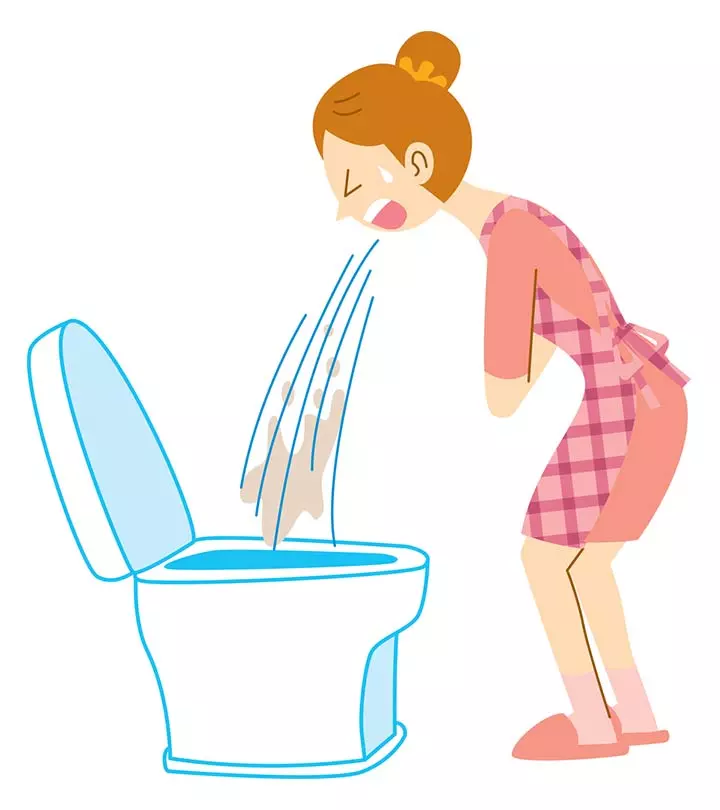


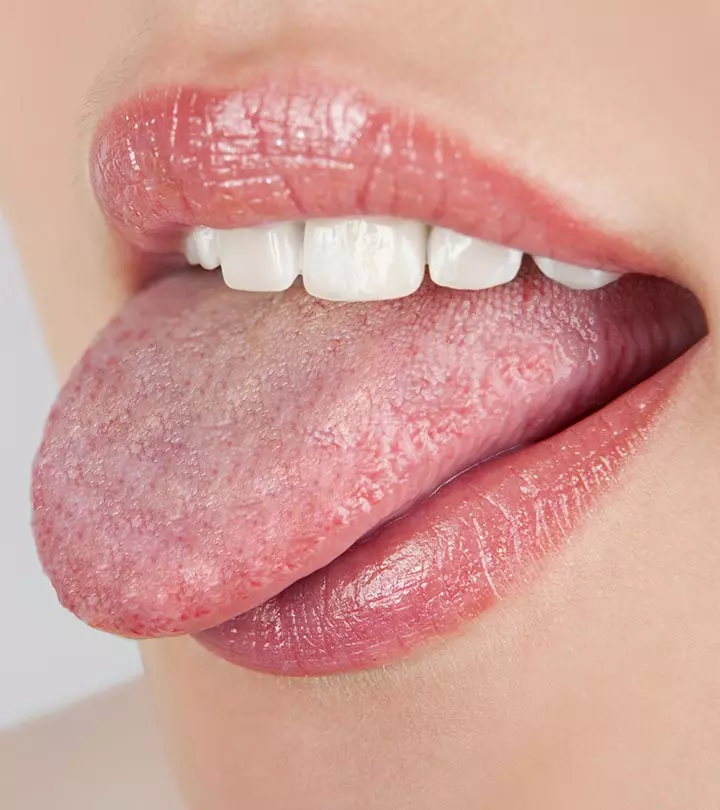


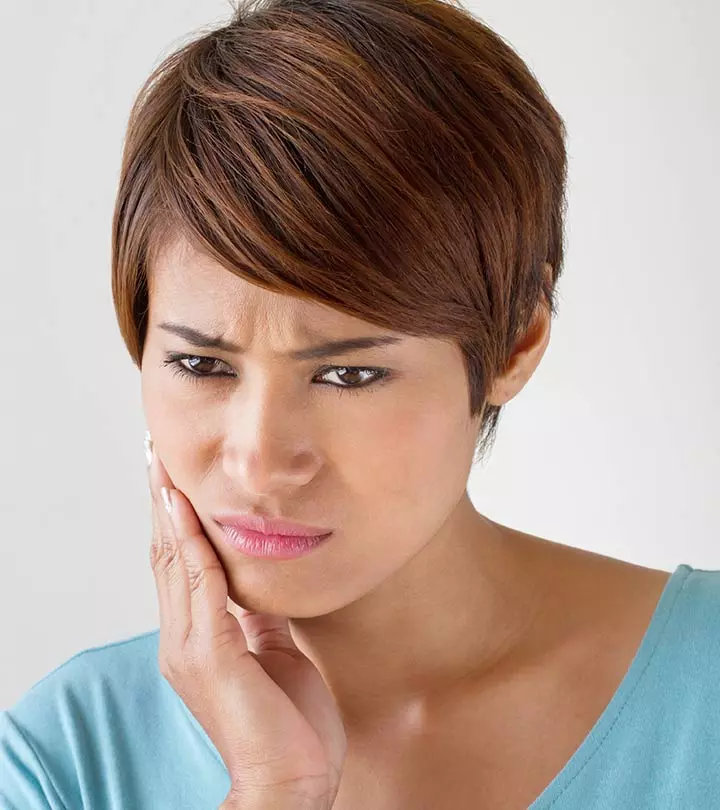




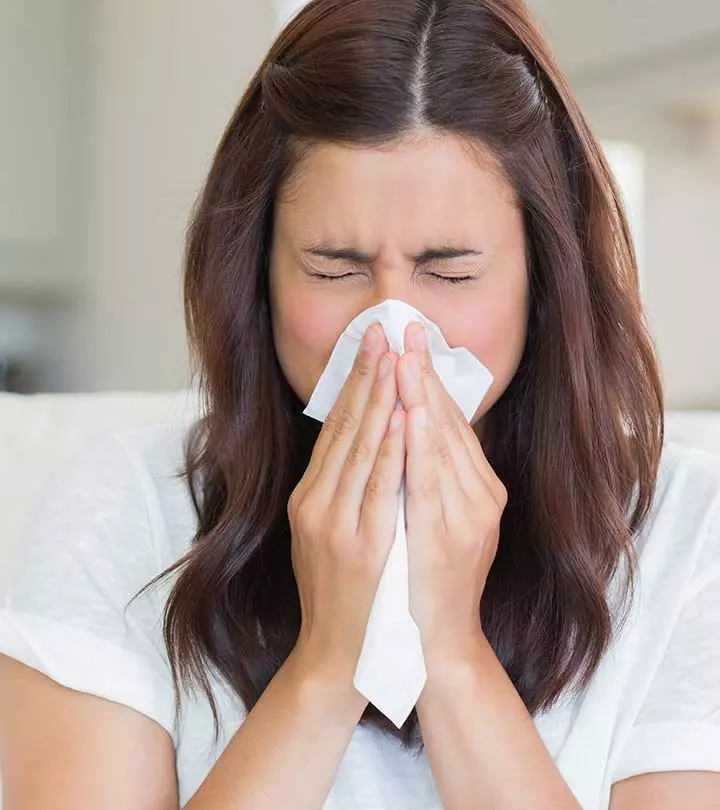


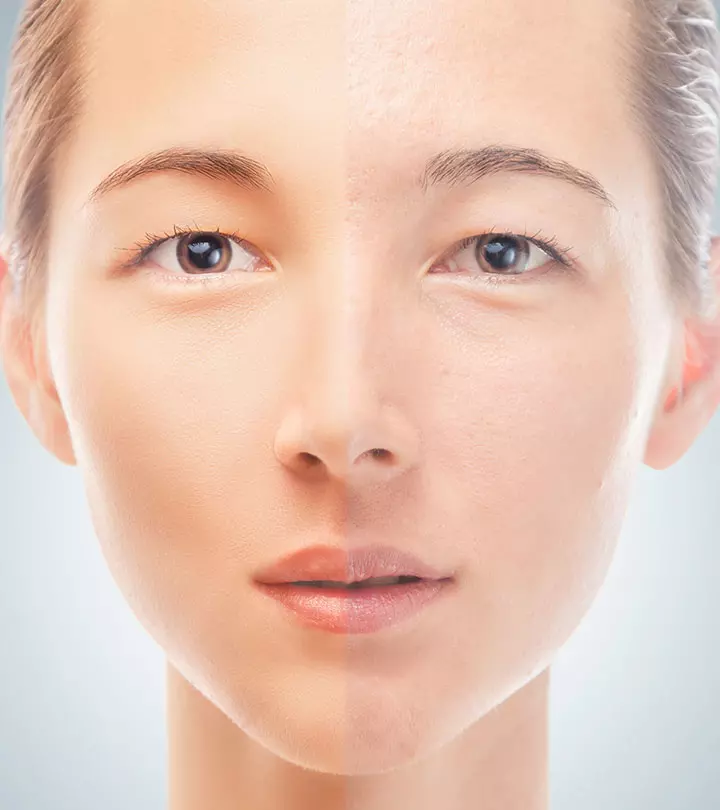

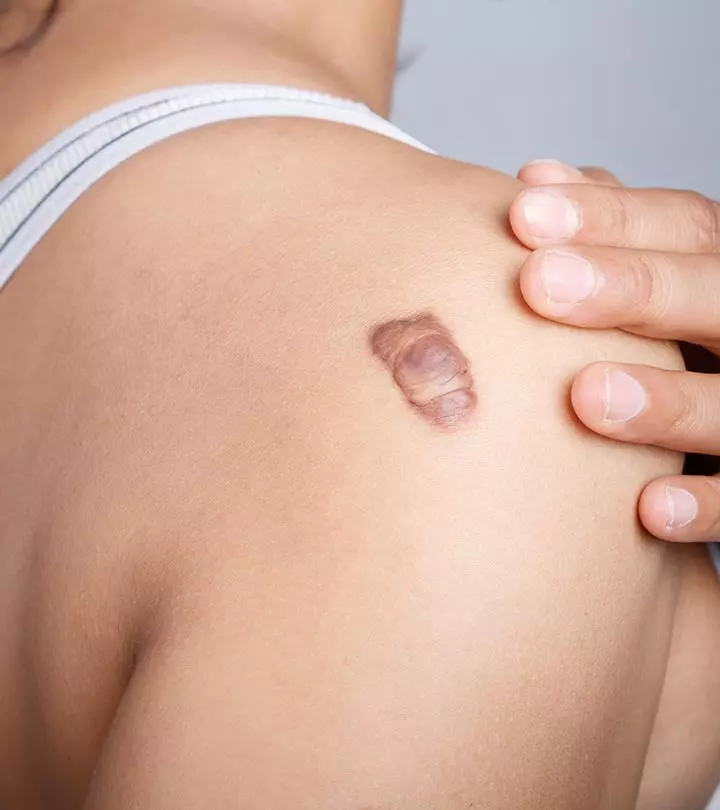


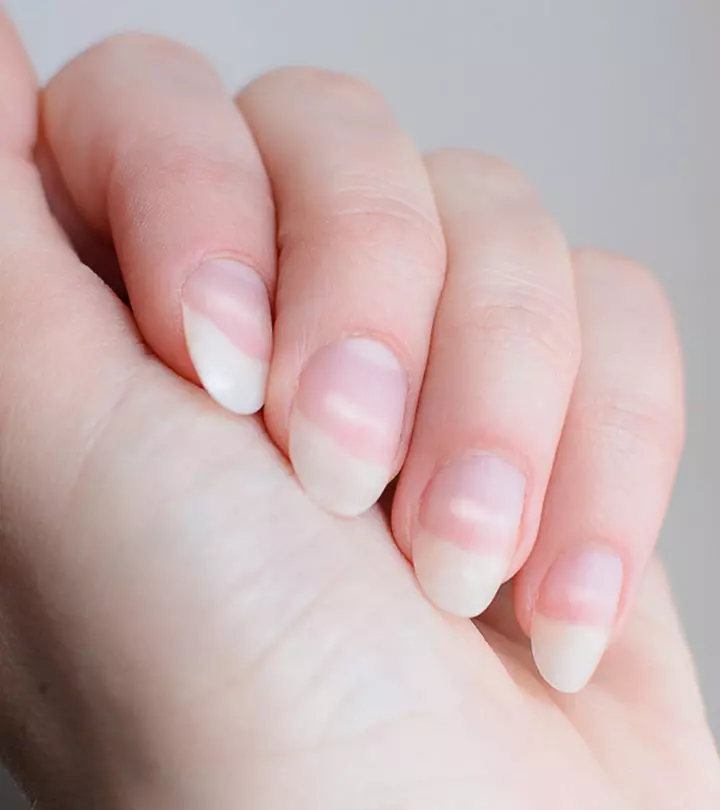
Community Experiences
Join the conversation and become a part of our empowering community! Share your stories, experiences, and insights to connect with other beauty, lifestyle, and health enthusiasts.